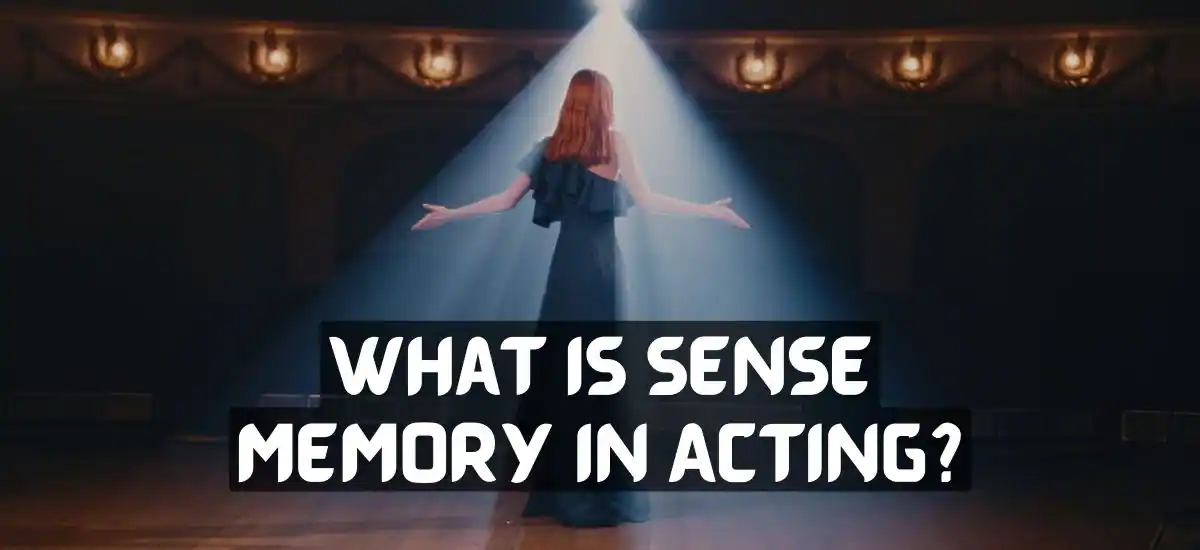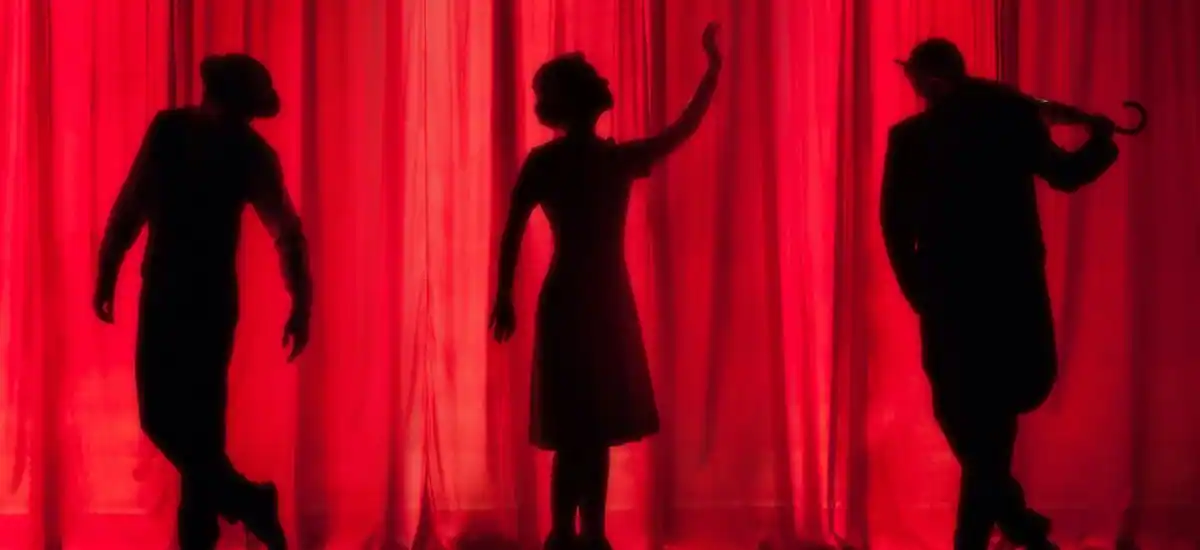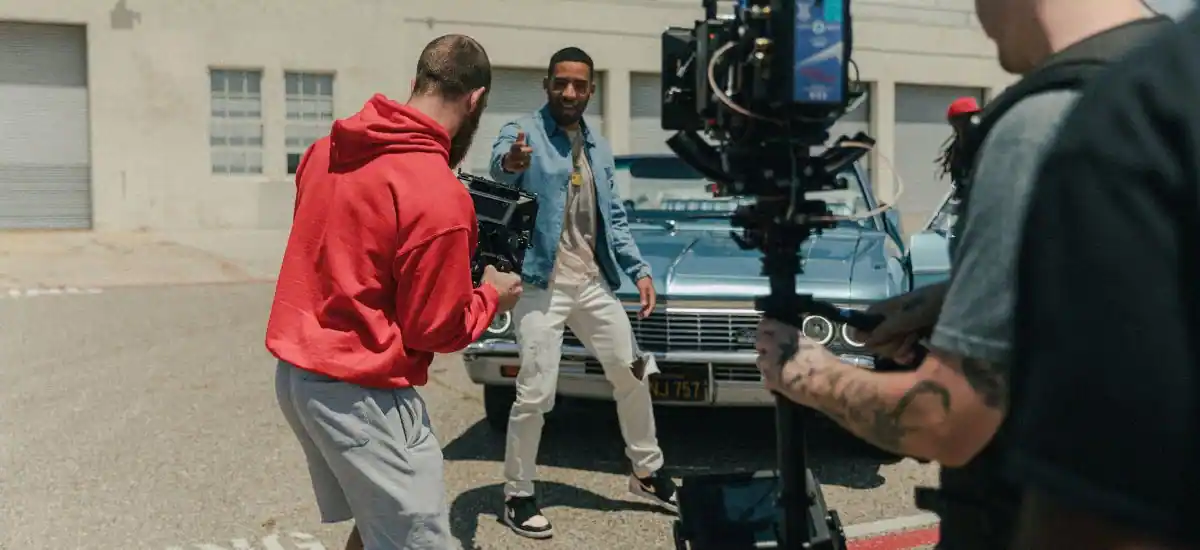What is sense memory? Though Sense Memory is controversial, it is used to recall emotional as well as physical sensations that revolve around the emotional events that happened with a person in the past.
As an actor, one can master these skills by doing a simple and quick series of exercises. And today, we share how to learn this skill to become the best actor.
The True Reason Behind Using Senses In Acting: Why Sense Memory?
You May Also Like: A Full Guide What Is A Method Actor
Acting is not an easy job! It demands an actor to display real and raw emotions on the spot. However, some actors are unable to play naturally.
And since memory is one of the easiest tricks, the skilled actors use this as a tool to bring out spontaneity and originality to their role.
It is a simple technique because it does not require any complicated steps or practice.
1. Conscious Process
Sense memory is a conscious process where an actor recalls the emotional as well as physical sensations that were present during an event that occurred in the past.
Five sensory organs play an important role in forming these memories and the most obvious forms are sight and sound.
2. Familiarity
The actor feels familiar with their current scenarios when their sense memory is activated.
It could be because of anything, touching a fabric, a song playing in the background, or a familiar smell that is linked to any event in the past.
So they recall these emotional stimuli and invoke the physical emotional response in return which helps the actors to bring out their characters to life.
The actor needs to create a scenario or think about a sad memory to tap their emotions to bring authentic performances.
Do You Know: How You Get An Agent For Acting
How To Use Sense Memory in Acting?
Here are some best and easy ways to use sense memory in acting:
1. Use Sensory Memories To Tap Into Emotion
Use specific techniques to bring out your emotions like sadness or anger to reach your potential as an actor.
2. Discover Your “Emotional Release Object”
What we see, interpret and feel are filtered out through our senses and get stored somewhere in our sensory memory. To find an “emotional release object,” to release an emotional event.
3. Don’t Just Remember Sensations—Relive Them
Relive the sensations of your past experiences to make them look more real. Believe that it is happening in your real life and see the magic.
4. Don’t Be Afraid To Rely On Imagination
Imagination is limitless and it is the key to making your performance 100 times better. So while enacting a scene, imagine the scenario in your head.
How To Exercise Sense Memory?
The sense memory exercise trains an actor’s senses to quickly respond during their performances.
So let’s find out how to master all your senses with a simple coffee cup technique developed by Lee Strasberg.
1. First of all, prepare a cup of coffee and get a chair or a comfortable seat where you can relax.
2. Once you feel comfortable and relaxed, then start exploring the cup with one of your five senses.
3. Start with the sense of sight and view of the cup, its height, diameter, color, material, dimensions, designs, reflections of the light, flaws in the cup, coffee in the cup, etc.
4. Once you complete the above steps, move to the sense of touch.
5. Now, repeat all the senses once again to remember the feeling while touching and seeing the cup. Try this exercise once again, but without a cup of coffee
Read This: What Production Designer Do?
Examples Of The Relationship Between Your Sensory And Your Feelings:
- While holding a handheld firework, moving it from one hand to the other hand makes your eyes perceive a trait of light. This satisfies us and gives pleasure to your eyes.
- Touching a cute furry dog releases happy emotions and makes us want to do it more.
- Smelling a familiar cologne reminds us of a past happy incident or a season.
- Certain foods remind us of our childhood memories or home-cooked meals made by our mother.
Types Of Sense Memory
There are three types of sensory memory and they are different from one another. And they are:
1. Iconic memory: Iconic memory is linked with the things we see. Though it has a large amount of storage, one cannot store a particular memory for more than a second.
The brighter the object is, the longer it stays in your iconic memory.
2. Echoic memory: As the name suggests, Echoic memory is associated with hearing and sound. Our brain takes a few seconds to process the sound or audio we hear.
As soon as the sound enters our ear, the temporal lobe begins to process it. According to studies done by experts, echoic memory is important to learning a language.
Besides, people who struggle while speaking might store their memories for a shorter amount of time.
3. Haptic memory: The third and the last sense memory is Haptic memory which is related to your sense of touch.
It includes sensations like itching, pain, pressure, or something that feels good. In simple terms, haptic memory helps us to identify things that we are touching.
Frequently Asked Questions.
Q1. What is sense memory in theatre?
Sense memory is kind of a technique used in theater. An actor draws on the memory sensations from his past or personal life to make the character appear more genuine.
In this technique, the actor remembers all the senses of their sense impressions that they experience in their day-to-day life.
Moreover, most of these impressions are stored in their subconscious mind. A person can learn to recall these impressions from their subconscious by focusing on the stimuli associated with them.
Suppose, an actor is playing a role of a hungry person. And if they have been hungry enough or just think about their favorite food, it can make their mouth water.
Remembering the taste of your favorite food and how the brain responds to it by activating the salivary glands is a part of sense memory.
Q2. Which sense memory Strasberg used in acting?
Lee Strasberg was one of the first acting instructors who recognized the real powers of the five senses which are the senses of smell, taste, touch, sound, and sight.
All these senses are well connected to the emotional memories we carry with us throughout our lives.
So Strasberg used these scenes for acting purposes to unlock the power of an acting skill called “emotional recall” or “Affective memory”.
The actor can truthfully and quickly recall their emotion by recalling the sensory stimuli surrounding any past or present emotional experience.
Thus, this can help them to infuse those raw emotions into their characters.
Q3. What is a good emotional recall example?
In acting and emotional recall means an actor tries to feel one cue. For example, the auditioner goes into the audition, says hello, and begins his emotional act.
He suddenly sits down and starts crying over his imaginary mother’s death. Here, what happens is the actor recalls a sad incident from his past and tries to connect it with his act.
A true emotional recall can be experienced through sense memory which brings out the raw and real emotions.
Q4. What are some famous Konstantin Stanislavski’s emotional memory quotes?
Below we have added some popular Konstantin Stanislavski quotes:
- “Love art in yourself, and not yourself in art.”
- “Every person who is an artist desires to create inside of himself another, deeper, more interesting life than the one that surrounds him.”
- “If you are looking for something, don’t go sit on the seashore and expect it to come and find you; you must search, search, search with all the stubbornness in you!”
- “If you have a rifle, hanging on the wall in the first act, it should fire in the last act”.
- “You can kill the King without a sword, and you can light the fire without a match. What needs to burn is your imagination.”
- “The theatre infects the audience with its noble ecstasy.”
Read More: How Much Actors Make




